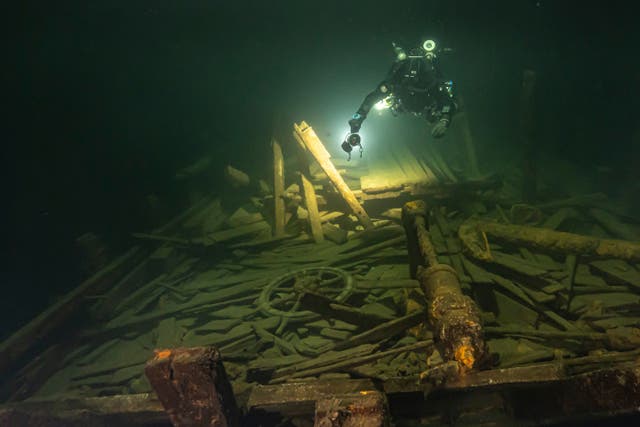Sunken 19th century ship found with Champagne cargo off Swedish coast
Divers believe the precious goods could have been on the way to the royal table in Stockholm or the Russian tsar’s residence in St Petersburg.

A team of Polish divers has discovered the wreckage of an old sailing ship loaded “to the brim” with luxury goods including porcelain items and about 100 bottles of Champagne and mineral water about 190ft deep off the Swedish coast.
They believe the precious goods could have been on the way to the royal table in Stockholm or the Russian tsar’s residence in St Petersburg when the ship sank some time in the second half of the 19th century, according to the leader of the team, Tomasz Stachura.

They were ready to call it a day, but two divers, Marek Cacaj and Pawel Truszynski, decided to make a quick dive and emerged two hours later with the news of the wreckage and its valuable cargo.
“I have been diving for 40 years, and it often happens that we find a bottle or two in a wreck, but to discover so much cargo, it’s a first for me,” Mr Stachura told the Associated Press this week.

The Champagne brand is still to be determined but the letter R could be seen on one cork, Mr Stachura said.
He said he believes the contents are still in good condition.
“At this depth the wreckage is perfectly preserved, the temperature is constant, there are no currents and it’s dark,” he said. “That preserves the wreckage in a wonderful way.”

Divers from Baltictech previously discovered the wreck of the SS Karlsruhe, the last ship to leave Koenigsberg in 1945 as part of the evacuation of German civilians in the Second World War.





